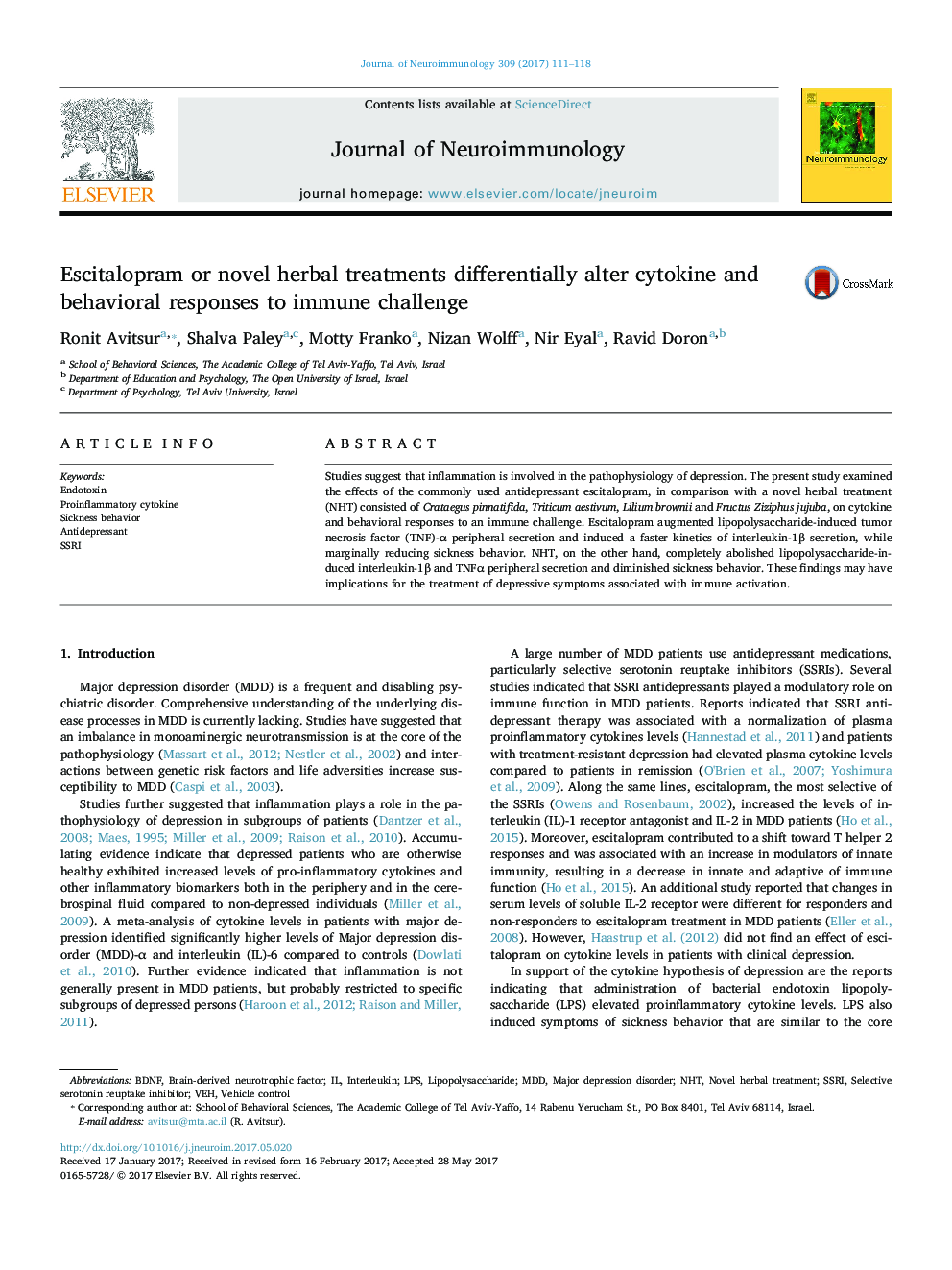| Article ID | Journal | Published Year | Pages | File Type |
|---|---|---|---|---|
| 5630311 | Journal of Neuroimmunology | 2017 | 8 Pages |
â¢Effects of escitalopram or herbal treatment on the response to LPS were assessed.â¢Escitalopram augmented LPS-induced TNFα and altered the kinetics of IL-1β secretion.â¢Escitalopram marginally reduced sickness behavior.â¢Herbal treatment abolished LPS-induced IL-1β and TNFα secretion.â¢Herbal treatment diminished LPS-induced sickness behavior.
Studies suggest that inflammation is involved in the pathophysiology of depression. The present study examined the effects of the commonly used antidepressant escitalopram, in comparison with a novel herbal treatment (NHT) consisted of Crataegus pinnatifida, Triticum aestivum, Lilium brownii and Fructus Ziziphus jujuba, on cytokine and behavioral responses to an immune challenge. Escitalopram augmented lipopolysaccharide-induced tumor necrosis factor (TNF)-α peripheral secretion and induced a faster kinetics of interleukin-1β secretion, while marginally reducing sickness behavior. NHT, on the other hand, completely abolished lipopolysaccharide-induced interleukin-1β and TNFα peripheral secretion and diminished sickness behavior. These findings may have implications for the treatment of depressive symptoms associated with immune activation.
Graphical abstractDownload high-res image (80KB)Download full-size image
